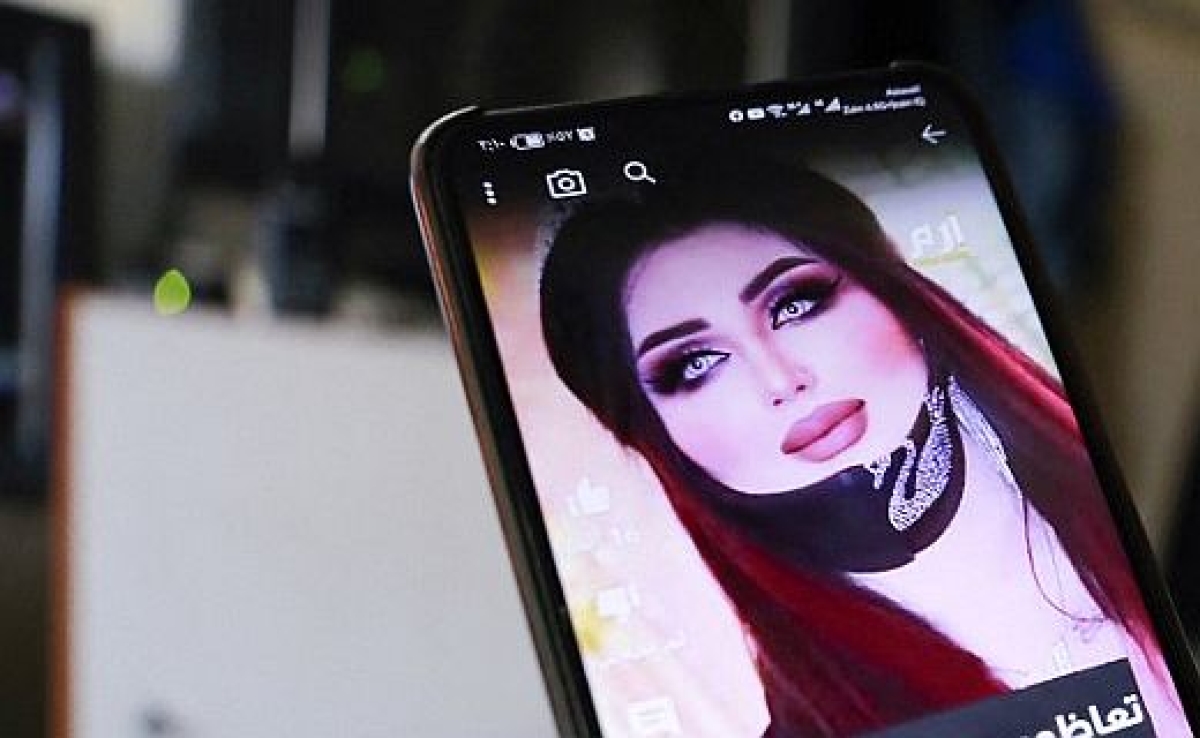Angriff aus Pressefreiheit im Irak

Irakische TicTocerin Om Fahad, Bildquelle: Twitter
Kürzlich verabschiedete die unter iranischem Einfluss stehende Regierung im Irak ein neues Gesetz, das von Kritikern als Zensur abgelehnt wurde. Verhaftungen populärer Betreiberinnen und Betreiber von YouTube und TicToc Kanälen geben ihnen Recht.
Im Februar wurden im Irak einige populäre Betreiber von Kanälen auf Social Media verhaftet:
Dancing to Iraqi pop made TikTok personality Om Fahad a hit with thousands of followers, but she is now in prison, caught in a state campaign targeting “degenerate material”.
The young Iraqi woman using that pseudonym was sentenced earlier this month to half a year for a lighthearted video clip that featured her in skimpy clothes.
A new government campaign aims to cleanse social media platforms of content that violates Iraqi “mora and traditions”, the interior ministry announced in January.
A special committee now scours TikTok, YouTube and other popular platforms for clips considered objectionable by many in the largely conservative and patriarchal society.
“This type of content is no less dangerous than organized crime,” the ministry declared in a promotional video asking the public to help report such content.
“It is one of the reasons for the destruction of the Iraqi family and society.”
Days after Om Fahad’s sentencing, another TikTok influencer, who goes by the online name of Asal Hossam, received a harsher prison term of two years.
Zum Glück fand das nicht unweidersprochen statt. Überall zeigten besonders junge Irakis ihre Solidarität. Was für sie dieses Gesetz bedeutet beschreibt in treffenden Worten Faisal Said al Muhtar:
Soon after we heard about the legislation cracking down on free speech, a group of Iraqis (we are sometimes vaguely described as a “liberal coalition”) started a campaign both within parliament and among Iraqi citizens to try to stop this harmful and dangerous legislation from being upheld. Ahmed Albasheer launched a campaign to support Aboud Skeba, one of the comedians who was the latest victim of the reigning government’s feckless laws. When asked why he started the campaign, Albasheer said, "What motivated me to launch this campaign in support of Skeba in pursuir of his and his colleague’s release is the fact that Iraq is facing so many issues that need much more attention from the government than the story of a comedian that the government deems ‘immoral’ or ‘sexual.’ The words Skeba used were not explicit in any way. It is a slippery slope from controlling bloggers, social media influencers, and entertainment. I believe this is just the beginning of governmental efforts to interfere in people’s freedom of expression and advance their efforts to silence and scare everyone. It’s about control."
It looks like the telecommunication committee leaked an internal communication document containing activities that they deem offensive. This list includes but is not limited to; criticizing the government, criticizing religious and political figures, promoting human rights, and defending the LGBTQ community. All of this is a vicious attempt to silence people and control the type of content they are exposed to. They only want to allow content that actively serves the government’s agenda.
Aboud comes from an impoverished family and worked in construction prior to his wrongful arrest. In his spare time, the comedian recorded funny videos about his attempt to speak in English without knowing any vocabulary. Seems harmless, right? The Iranian regime, now infamously known for the killing of Mahsa Amini for not wearing her headscarf properly, doesn’t agree. They see it as a threat to their continued reign of terror. The Iraqi government arrested Aboud for the crime of making people laugh.
Aboud’s arrest engendered sympathy from many Iraqis. Albasheer’s campaign aims to buy Aboud a house. Since its launch, it has been getting support from many Iraqis living at home and abroad. My organization, Ideas Beyond Borders, happily contributed.
The jailing of Aboud Skeba epitomizes a theocratic version of cancel culture. Iraqis are tired of having their rights curtailed at the whims of religious zealots and are revolting against it. Hundreds of Iraqi youths are showing their support for Aboud on social media, despite the risk that they may be arrested for doing so. Unlike former generations who became so desensitized to dictatorship and censorship that it was accepted as the norm, this new generation of Iraqis has lived their entire lives with a relative taste of freedom. They are now standing strong against those who once again want to take their liberties from them. Iraqis will not stand by and watch their country become a second home for the Islamic Republic regime. Their desire is a simple one; Iraqis want to retain the freedom to laugh, and they are willing to fight for it. Should the Iraqi government not heed their message and continue taking its queues from Iran’s dictators, they just might be setting the stage for an uprising.